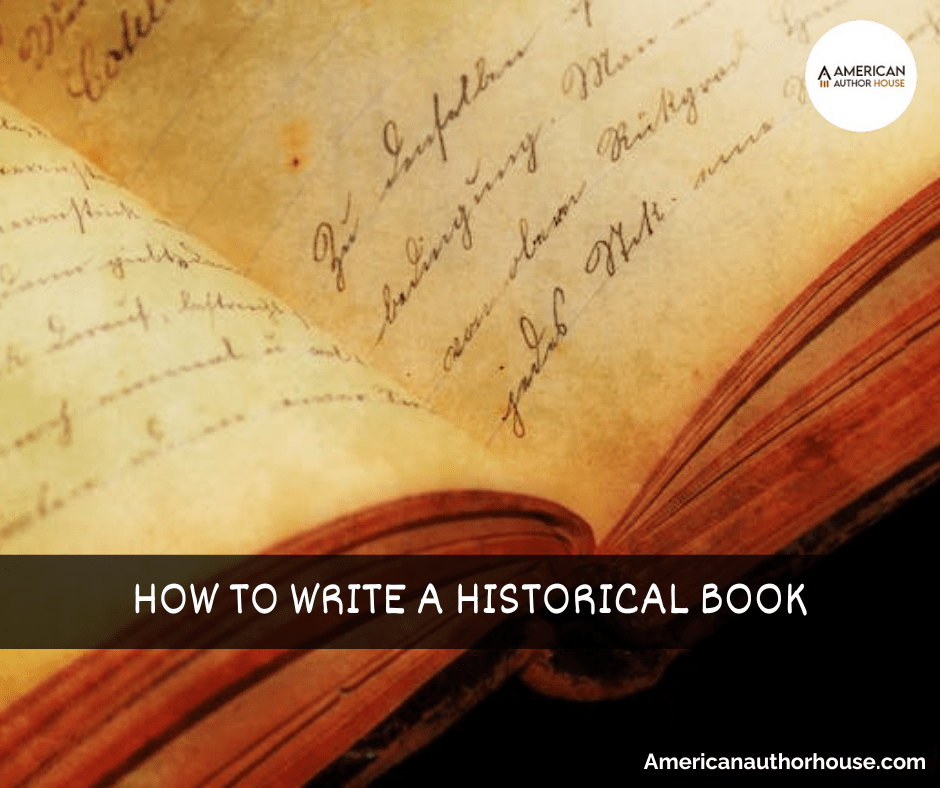
Writing
Step into a time machine and go on a fascinating trip through the history books. Imagine having a key that lets you into the secrets of the past and lets you tell a story that will be told for generations.
As a historian and skilled writer, you can bring lost events and heroes back to life and tell the untold stories that shaped our world.
We’ll walk through the maze of historical writing and learn how to write a great historical book that will take readers back in time. As we look into the fascinating world of writing a book, get ready to put on your study hat, take up a storyteller’s pen, and solve the mysteries of the past.
Step-by-Step Guide On How to Write a Historical Book:
Doing these things makes history come alive and tells a story that will stick with your audience.
Choosing Your Historical Topic:
The first step in writing a history book is choosing a topic that interests and excites you. Research different times, places, or people that interest you and fit with the interests of your target audience. It’s important to pick a topic with a lot of historical importance and enough sources to back up your study. Getting interested in a topic you care about will make writing your book more fun and improve quality.
Conducting Thorough Research:
It would help if you did a lot of studies to write a true story about the past. Explore libraries, archives, and digital resources to find reliable information about your selected topic. Explore firsthand sources like diaries, emails, and official records. Therefore, American Author House gives you firsthand information and gives your story more depth. Also, use reliable secondary sources to learn more about the historical background of your topic.
Outlining Your Book:
Before you start Historical Book writing, having a clear plan for your work is very important. An outline helps you organize your ideas, arrange your content, and keep your writing moving logically.
Your book should be divided into parts, and each chapter should have subheadings highlighting the most important points. This makes it easy for people to find their way around your book and helps search engines understand how your content is organized, making it easier to find it online.
Engaging Writing Style:
When writing a book about history, it’s important to use a style that keeps readers interested. Use colorful and detailed language to depict the places, people, and historical events. Use “active voice” in your words to make your story more interesting and powerful. Amazon publisher services can take your readers back in time and bring history to life on the pages of your book by adding feelings, conversation, and sensory details.
Originality and Correctness:
Staying true to the past and being accurate is important when writing a Historical Book. Ensure the information you give comes from reliable sources and that your interpretations align with what is known about history. However, cite your sources correctly so that your readers can look into them further if they want to. Sticking to the truth builds trust with your readers and shows that you are a reliable author.
Editing and Proofreading:
Once you’ve finished the first draft of your book about history, give editing and reviewing a lot of time. Therefore, ebook writing services Check work for grammar, spelling, and general flow mistakes.
Use tools like Grammarly to fix spelling or language mistakes and ensure your writing is polished and professional. You could ask beta readers for comments or hire a professional editor to help you find mistakes and improve.
Building a Strong Author Platform:
Building a strong author platform is important to reach more people and market your historical book well. Similarly, set up a website or blog to share new information, your thoughts, and more past information. Use social media to connect with readers, join historical groups, and work with other authors or experts in the field. A strong online profile makes you more visible and helps you connect better with your target audience.
Types of History Books:
There are many ways to organize and tell people about history, each of which has benefits. There is no one way that is better or worse. It’s more about finding the best one for you and your content.
Look at these different kinds of Historical Books. Which way will make people fall in love with your words and the historical topic you’re writing about?
1- Relationship-focused History:
A big part of history is how people communicate with each other. Events might have turned out differently if any main people had made different choices. Also, by looking at the relationships between the important people in a historical event, you can learn about their different experiences and sometimes different points of view that came together to make a single, unique event.
2- Personal Responses to History:
What happened in the past can seem like it has nothing to do with the present, but it may have a bigger effect on us than we think. A good way to learn about yourself is to look into a part of history and consider how it has changed your life. When you, as the author, look at history through such a personal lens, you can show your readers both strong feelings and important facts.
3- Focus on an Incident:
When you focus on one historical event, you can tell the story of the time and place where it happened through one event or related events. By creatively setting the scene, you can help readers understand the event, people, place, and time, as well as the long-term value of the matter.
4- Historical Fiction:
A historical book is a work of fiction mostly based on real events, people, and places. Small changes can be made to what happened to make the story better and cleaner. The dialogue can be made up or paraphrased, but it should fit with what is known about the people, the time, and the place. This clever way connects readers to the story and teaches them about a certain period.
5- Photography Book:
Sometimes it’s better to show a picture than to say 1,000 words. Pictures, sketches, diagrams, maps from the past, and copies of original papers with handwriting, can show much information that is hard to put into words. A picture book is a good way to show how a place or time looked and felt. It’s also useful for writing about wars, inventions, or other complicated topics that need maps, diagrams, or other visuals.
6- Quiz Books:
People who like information can be interested in your history book if it has interesting facts about a certain time, place, or topic. These can be simple one-line facts or short stories that show how something happened that most people don’t know much about.
Main Steps, Process, and Elaborate Information
| Step | Process | Tips for Success |
|---|---|---|
| Choosing Your Historical Topic | Select a period, place, or person that intrigues you and resonates with your audience. Ensure the topic has sufficient depth and resources for research. Your passion for the subject will fuel your writing. | Ensure the topic has sufficient depth and resources for research. Your passion for the subject will fuel your writing. |
| Conducting Thorough Research | Dive into primary and secondary sources to gather detailed information. Visit archives, libraries, and utilize digital databases. Prioritize accuracy and authenticity in your findings. | Visit archives, libraries, and utilize digital databases. Prioritize accuracy and authenticity in your findings. |
| Outlining Your Book | Create a structured plan for your content, organizing chapters and subheadings. An outline serves as a roadmap, keeping your narrative focused and coherent. Adjust as needed during the writing process. | An outline serves as a roadmap, keeping your narrative focused and coherent. Adjust as needed during the writing process. |
| Engaging Writing Style | Adopt a narrative style that vividly brings the past to life. Use active voice, sensory details, and incorporate dialogue to create an immersive experience for the reader. | Use active voice, sensory details, and incorporate dialogue to create an immersive experience for the reader. |
| Originality and Correctness | Balance creative storytelling with historical accuracy. Always cite sources and avoid anachronisms. Originality should never compromise the truth of the historical context. | Always cite sources and avoid anachronisms. Originality should never compromise the truth of the historical context. |
| Editing and Proofreading | Review your draft for clarity, flow, and accuracy. Consider professional editing services and beta readers to refine your manuscript. Tools like Grammarly can assist with grammar and spelling. | Consider professional editing services and beta readers to refine your manuscript. Tools like Grammarly can assist with grammar and spelling. |
| Building a Strong Author Platform | Establish an online presence to connect with readers and market your book. Create a website, engage on social media, and join historical communities. Networking is key to reaching your audience. | Create a website, engage on social media, and join historical communities. Networking is key to reaching your audience. |
Conclusion:
Writing a book about history is a labor of love that takes careful research, interesting stories, and a lot of hard work. Doing these things can start a gratifying journey of writing about the past. Choose an interesting topic, study it, outline it, and ensure your writing is accurate and true. Edit and proofread carefully and build a strong author platform if you want the world to read your history book. Now, go out and use your words to bring history to life!



